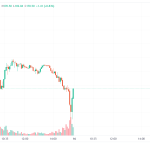The learning from early mistakes, gaining, understanding of trading, investors, traders can move beyond initial failures work towards long-term success.
The Journey of Becoming a Successful Trader
1. Passion
The journey into trading and investing begins with a powerful motivator. This Passion often centres around earning substantial amounts of money, finding an additional source of income, or leveraging market knowledge to achieve high returns. While Passion is a fundamental driver that gets individuals interested in the stock market, it is crucial to understand that this initial spark is not enough on its own. In trading, this desire is frequently associated with the appeal of quick financial gains with minimal effort. This allure can lead to a skewed perspective where individuals underestimate the complexities and risks involved in the market.
2. Beginning Phase
The Beginning phase of opening a trading account is a significant step for many. A survey reveals that a large percentage of new accounts are opened in anticipation of participating in Initial Public Offerings (IPOs) or investing in reputable companies. However, many investors quickly shift their focus towards the "Get Rich Quick" mentality. This shift often results in hasty decisions driven by the allure of quick profits rather than informed strategies.
- Common Challenges: New investors might dive into trading without Suitable knowledge, often relying on advice from brokers who may Focus on their own commissions over the investor's success. Alternatively, some individuals may attempt to educate themselves through jobs or training, which is a more disciplined approach compared to jumping straight into trading.
3. Doing General Mistakes
As individuals gain their initial experience, they often make a series of common mistakes that stem from their lack of understanding and experience:
- Over-trading: Trading too frequently without a clear strategy can lead to unnecessary losses.
- Over-leverage: Using excessive leverage increases risk and can magnify losses.
- Poor Advice: Relying on brokers or dealers who may not have a track record of success.
- Constant Monitoring: Watching market prices obsessively can lead to emotional decision-making.
- Fear: Emotional responses to market fluctuations can lead to poor decision-making.
- Timing Issues: Investing during favourable conditions but exiting during unfavourable ones.
- Lack of Exit Plan: Not having a clear strategy for when to exit a trade.
- Premature Exit: Taking profits too early and holding onto losing positions for too long.
When faced with losses or disappointing results, individuals often fall into the "Blame Game," attributing their failures to external factors such as:
- Economic Conditions
- Brokers and Dealers
- Market Conditions
- Luck or Destiny
This blame-shifting reflects a lack of personal accountability. As John Burroughs aptly stated, "A man can fail many times, but he is not a failure until he begins to blame somebody else." This stage can lead to frustration and a negative view of trading and investing as a whole.
Transition to the Second Stage
During this initial stage, a significant proportion of investors around 80% might abandon trading or investing altogether due to their dissatisfaction and losses. The remaining 20%, however, may progress to the second stage by learning from their mistakes and refining their approach.
Moving Forward: Learning and Adaptation
For those who persist, the transition to the next stage involves:
1. Education: Acquiring in-depth knowledge about the markets, trading strategies, and risk management.
2. Developing a Strategy: Creating a well-thought-out plan that includes entry and exit points, risk management, and adherence to discipline.
3. Continuous Improvement: Analyzing past trades to understand what worked and what didn’t, and adjusting strategies accordingly.
4. Building Resilience: Developing emotional resilience to handle market fluctuations and avoid knee-jerk reactions.
Conclusion
The learning from early mistakes and gaining a deeper understanding of trading, investors and traders can move beyond initial failures and work towards long-term success in the financial markets.
Leave a comment
Your email address will not be published. Required fields are marked *



